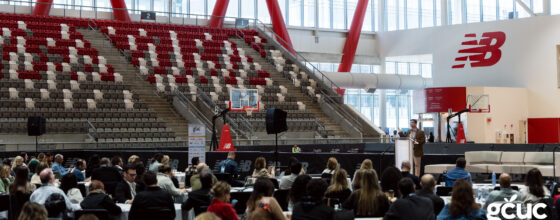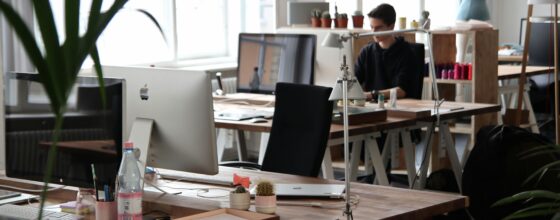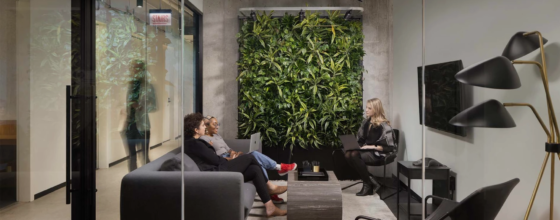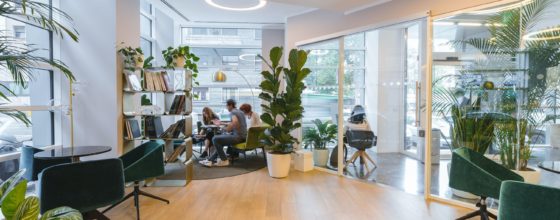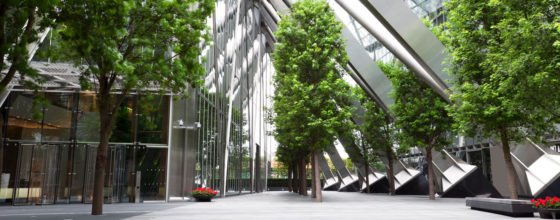The Hidden Dangers of Desk Placement: Why Facing a Wall Is Bad for Your Eyes and Mind
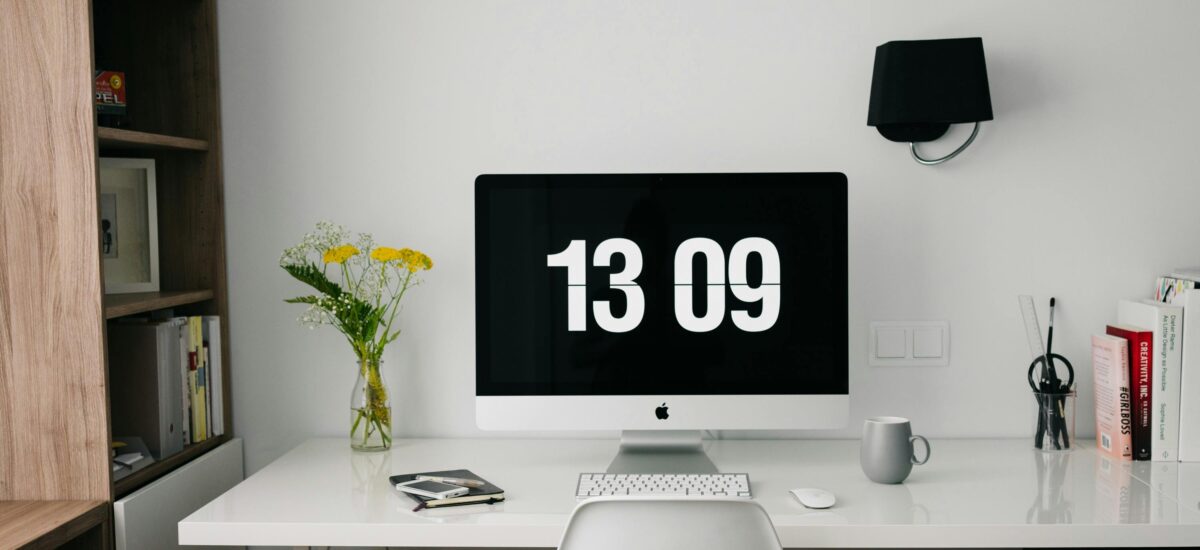
Author: Liz Elam, Founder of GCUC
I recently saw a local paper covering a new coworking space opening. The picture they posted was sad. A small desk facing a wall with a not great chair and a desk right behind them so close it would be almost impossible to get a human to sit there. That second desk was right next to a barn door. That door can’t be great for acoustics or focus. The third desk was also right up against a wall but at least had a proper office chair…
PSA: Placing a desk facing a wall is a bad idea.
When setting up a workspace, many people focus on practicalities: a sturdy desk, a comfortable chair, and the right tech setup. However, one critical design element often gets overlooked—where your desk faces. For those with desks shoved up against a solid wall, the placement might seem space-efficient, but it can quietly wreak havoc on your eyes, mental health, and productivity.
Here’s why facing a wall might be holding you back and how a simple change can enhance your work environment.
The Strain on Your Eyes
Staring at a solid wall for hours creates a visually stagnant environment. Without depth or variation, your eyes don’t get the opportunity to adjust focus, leading to digital eye strain.
Why it matters:
- Limited Eye Movement: Your eyes are designed to move, shifting focus from near to far objects throughout the day. Facing a wall restricts this natural motion, leading to tension in your eye muscles.
- Poor Lighting Dynamics: Walls can create shadows and reflect artificial light unevenly, exacerbating glare and strain when using screens or paper.
Simple fix: Position your desk to face a window or an open space to give your eyes a break with natural light and varied focal points.
The Mental Health Toll
Your surroundings profoundly influence your mental state. Facing a wall can feel restrictive and claustrophobic, sending subtle signals to your brain that limit creativity and focus.
The psychological downsides:
- Lack of Visual Stimuli: A blank wall offers no inspiration. Over time, this can lead to feelings of monotony, contributing to mental fatigue.
- Heightened Stress Levels: Feeling “boxed in” can unconsciously trigger stress, as the lack of openness mimics the constraints of a confined space.
- Reduced Productivity: Studies show that workers are more productive and creative in spaces with natural elements or expansive views.
Consider rearranging your workspace to face an open area or, better yet, a view of nature. This simple change can reduce stress and foster creativity.
The Impact on Posture and Ergonomics
When a desk is pushed against a wall, it’s easy to hunch forward, bringing your body closer to the wall as if to “escape” it. This unconscious behavior can harm your posture and lead to neck, back, and shoulder pain.
Ergonomic effects:
- Cramped Feeling: Walls limit movement, making it harder to stretch or adjust positions freely.
- Forward Head Posture: The urge to lean into your screen becomes more pronounced in a wall-facing setup.
Reclaiming Your Workspace
The good news is that you don’t need a massive overhaul to fix the problem. Here are some quick tips for a better setup:
- Relocate Your Desk: If possible, position your desk to face a window or open space.
- Add Visual Interest: If moving the desk isn’t an option, hang art or place a mirror on the wall to add depth and stimulation.
- Bring in Nature: Incorporate plants or nature-themed décor to improve mood and reduce stress.
- Practice the 20-20-20 Rule: Every 20 minutes, look at something 20 feet away for 20 seconds to reduce eye strain.
The Big Picture
Your workspace should empower you—not drain you. Desk placement might seem minor, but it’s a foundational element of a productive and healthy work environment. By rethinking where your desk sits and what you’re facing during the day, you can give your eyes, mind, and body the care they deserve.
Don’t let a wall block your potential. Shift your perspective—literally—and feel the difference it makes in your workday.


